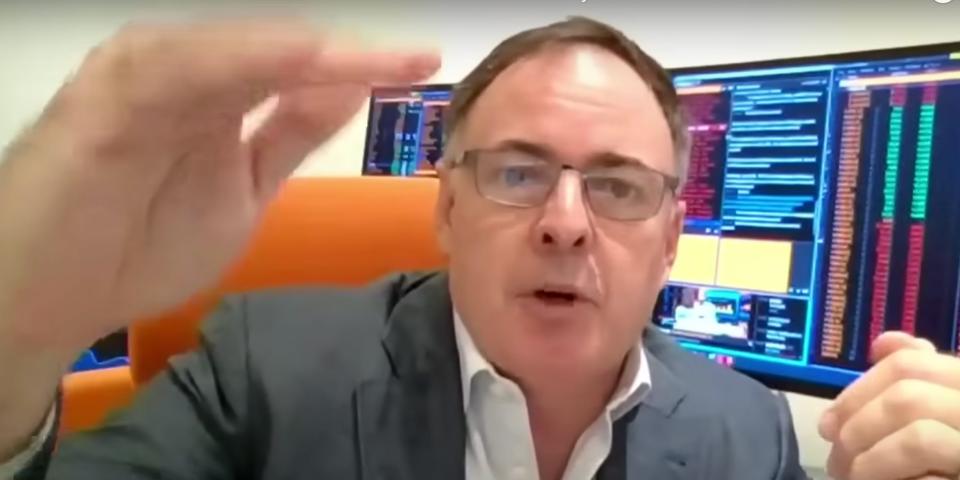.
Assets benefiting from higher inflation are poised for a multi-trillion dollar bull market, says top macro strategist

-
Larry McDonald predicts trillions of dollars will flow out of growth stocks over the next decade.
-
This is because money is going to the "inflation beneficiaries," assets that will rise if inflation stays high.
-
In a recent interview, he predicted that this could create a bull market in assets such as gold, aluminum and energy.
Top strategist Larry McDonald sees a huge bull market in assets benefiting from stubbornly high inflation.
The author of the Bear Trap Report and former head of U.S. macro strategy at Société Générale has warned of high prices in the economy, predicting that inflation will remain above the Fed's target of 2% over the next few years. In a recent interview on Blockwork's Forward Guidance podcast, he predicted that prices could be in the range of 3%-4% over the next decade.
"All of these sources of persistent inflation are coming at us," McDonald said, pointing to price pressures stemming from renewable production, government stimulus and a strong labor market.
These pressures are exacerbated by geopolitical conflicts. War itself triggers inflation, McDonald said, referring to the stagflation crisis of the 1970s that coincided with the Vietnam War.
"As a result, we are entering a more sustained inflationary regime," he warned.
However, this could be good news for the "inflation beneficiaries" - market segments that will actually soar as prices continue to rise. Those beneficiaries include assets such as nickel, aluminum, uranium, copper, gold, oil and natural gas, says McDonald, who estimates the energy grid alone could be worth about $2 trillion.
He added that this shift will draw a lot of money away from hot growth stocks like the "Magnificent Seven" and into hard assets and commodities. Some of these assets are already getting attention as the gold price surged to record highs this week.
"We're talking about trillions of dollars of capital moving, and no one is prepared for that," McDonald said.
However, investors generally expect inflation to return to its long-term target next year. According to the Federal Reserve Bank of Cleveland, the one-year inflation forecast for March fell to 2.07%. Prices have cooled sharply from their 2022 highs, with consumer prices rising by just 3.2% in February.
McDonald is one of the most bearish prognosticators on Wall Street right now, repeatedly sounding the alarm about the stock market and the path of inflation. In March of this year, he predicted that the stock market could plummet 30% in the next two months due to the economic impact of rising interest rates, and he made the same prediction for 2023, a year in which the stock market actually surged 25%.
Read the original article on Business Insider